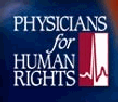Radiology - Technology Information Portal
Monday, 7 April 2025
'Computer Tomography' Searchterm 'Computer Tomography' found in 0 term [ • ] and 3 definitions [• ], (+ 10 Boolean[• ] resultsResult Pages : • The cerebral blood pool can be imaged with single photon emission computed tomography (SPECT) and positron emission computer tomography (PET) techniques. The used radiopharmaceuticals are technetium-99m labeled red blood cells (RCBs) for SPECT and O-15 labeled water for PET imaging. Measured can be cerebral blood volume, brain perfusion and cerebral metabolism. See Cerebral Metabolic Imaging, Fluorodeoxyglucose, Regional Cerebral Blood Flow, Coincidence Detection, Annihilation Coincidence Detection and Cyclotron. • Cerebral metabolic imaging can be accomplished with positron emission computer tomography (PET), magnetic resonance spectroscopy, and functional magnetic resonance imaging. PET uses positron-emitting radioisotopes of elements with short half-live such as fluorine-18, oxygen-15, nitrogen-13, and carbon-11 as tracers to image and to measure the cerebral metabolism. •
The range of diagnostics and imaging systems of Siemens Medical Systems covers ultrasound, nuclear medicine, angiography, magnetic resonance, computer tomography and patient monitoring.
CT and X-Ray Related Product Lines:
CT Systems
•
SOMATOM Definition
•
SOMATOM Sensation
•
SOMATOM Emotion
•
SOMATOM Spirit
•
SOMATOM Sensation Open
Contact Information
MAIL
Siemens Medical Solutions
Health Services Corporation
51 Valley Stream Parkway Malvern, PA 19355 USA
PHONE
+1 610 219 6300
FAX
+1 610 219 8266
EMAIL
ONLINE
CONTACT INFO PAGE
•
(CAT) See Computed Tomography.
Further Reading: Basics:
News & More:
•
(CCTA) Coronary computed tomography angiography is a diagnostic imaging procedure to visualize the coronary arteries. CCTA is a non-invasive angiogram that allows the assessment of narrowed and clogged arteries that can cause heart attack and stroke. Coronary CTA is a non-invasive alternative to traditional angiography that offers detailed images of heart function, resulting in faster, more accurate diagnosis. It helps stratify cardiac risk in patients with low to intermediate likelihood of coronary artery disease. For some patients with chest pain, coronary CTA can rule out the need for cardiac catheterization. Coronary imaging requires a very fast CT scan, because the coronary arteries and other cardiac structures move rapidly during the cardiac cycle. The current 'state of the art' 64 slice multi-detector row CT systems rotate around the patient in less than 500 ms. The data must be acquired monitored by an electrocardiogram, which allows the computer to reconstruct retrospectively slices at different small segments of the cardiac cycle. This cardiac synchronization reduces motion artifacts in the coronary arteries and provides movies of the beating heart and valve motion. See also Coronary Angiogram, Calcium Score, Cardiac Phase, Cine Mode and Defibrillator. Result Pages : |
Radiology - Technology Information Portal
Member of SoftWays' Medical Imaging Group - MR-TIP • Radiology-TIP • Medical-Ultrasound-Imaging
Copyright © 2008 - 2025 SoftWays. All rights reserved.
Terms of Use | Privacy Policy | Advertising
Member of SoftWays' Medical Imaging Group - MR-TIP • Radiology-TIP • Medical-Ultrasound-Imaging
Copyright © 2008 - 2025 SoftWays. All rights reserved.
Terms of Use | Privacy Policy | Advertising
[last update: 2025-04-05 02:37:00]




